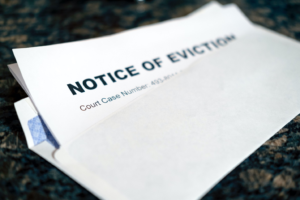
By letting out your property, you permit other people to live in it in exchange for regular payments or rent. The market for property rental has been expanding year on year as the population grows, and as a result there has been a shoring up of regulation. Increased regulation means additional responsibility has fallen on the shoulders of landlords and a failure to comply with these regulations can have serious consequences.
Here’s a list of things you need to do for before renting out your property to maximize the long term value from your investment but also limit the associated risk which may arise from a defaulting tenant or one who fails to respect the property and the relationship:-
Advertise
Market your property well to ensure a good supply of prospective tenants so you can find the right match for you and your property.
Many of you will consider the services of a local letting agent or web based marketing firm but there are plenty of ways by which you can advertise the property yourself through the use of online portals thereby saving on the costs. Advertising on online platforms is likely to reach the largest audience but may fall short on relevance. Hence, why a local agent may bring value to the marketing process. Regardless of which route you take it is advised to use high-quality, attractive, and sharp photos to help give your property the credit it deserves.
Whilst it may seem attractive at first to market the property yourself to save on any letting fees it should be appreciated that a good letting agent will likely understand and undertake many of the mandatory administrative functions on commencement of the tenancy to ensure you comply with many of your obligations as a landlord. The benefit of this may not seem apparent initially but later into the tenancy it could help you to recover your property more easily in the event your tenant defaults or there is a need to bring the tenancy to an end for personal reasons. If you decide against the use of a letting agent then learn about your obligations and act on them.
We will now cover these obligations and any activities of good practice:-
Conduct Robust Referencing
Before deciding on a suitable tenant for your property, ask for references from previous landlords, bank statements, current employment, etc. Try not to mistake treating the references as just a formality but carefully follow through on them. This will help you make an informed decision regarding your property.
Consider Landlord’s Insurance
A landlord agreement offers financial protection to landlords from any unforeseen events during the tenancy. This includes circumstances in which the landlord won’t be held responsible for the costs associated with accidental damage to property, flooding, etc.
A landlord can tailor the agreement based on their needs and/or what they choose to cover.
Prepare a Lease/Rent Agreement
Both parties must sign a legal agreement where each clause has been discussed and agreed upon. It provides the parties with a physical document that they can turn to in case of any disputes.

Make sure you add everything important to you in the agreement. This includes the basic information of the parties and the property in addition to details, such as tentative dates for payment and shifting, duration of the tenancy, breakdown of payments, advance rent, policies on late rent, keeping pets, etc.
Referencing Advised
Before deciding on a suitable tenant for your property, ask for references from previous landlords, bank statements, current employment, etc. Try not to mistake treating the references as just a formality but carefully follow through on them. This will help you make an informed decision regarding your property and the suitability of the tenant.
Do Not Charge Fees
The Tenant Fees Act bans a landlord from charging fees. Stay compliant to avoid a complaint from the local authority and any potential punitive charges being levied.
Register Deposit
If you decide to take a deposit from the tenant then ensure it is registered with a tenancy deposit scheme within 30 days of its receipt. Your tenant must be served with compliant prescribed information in parallel. These terms can be sourced from the deposit scheme. It is useful to obtain a signed copy from the tenant so you can demonstrate full compliance. The failure to comply with these requirements could entitle the tenant to seek the return of the deposit and demand you pay them between 1x and 3x the deposit sum in addition. There are a host of legal firms which will support tenants pursue a breach of this nature. In addition, they will seek to recover their legal fees, which could be substantial if the complaint is ultimately upheld.
The failure to register the deposit in accordance with legislation may also influence the way in which you are able to terminate the tenancy and recover the property. For example, a claim in breach of section 21 will fail if the requirements for securing the deposit have not been met.
Gas safety Certificate and Electrical Safety Certificate
Your first and foremost duty as a landlord is to ensure that your property is safe for people to live in, including precautions for the safety of the premises, gas safety, electrical safety, etc.
A gas safety and electrical safety certificate are mandatory requirements for all assured short hold tenancy agreements. Failure to obtain compliance can result in significant penalties being levied by the local authority. If the worst happens and your tenant is injured due to a fault which could have been highlighted by a qualified engineer then there may be consequences which extend to criminal negligence and incarceration.
In addition, fire safety should be also be priority. Ensure a fire alarm is installed on every floor and a carbon monoxide detector near solid fuel-burning appliances.
You should also serve a Gas Safety Certificate and an Electrical Safety Inspection Report to your tenants on the day they move in.
Energy Performance Certificate
An energy performance certificate provides information on how much energy the property uses, how costly it’ll be to run its heating, hot water and lighting, and what the carbon dioxide emissions are likely to be. It became a mandatory requirement to hold and serve from 1st October 2015. Again, the failure to hold and serve a valid EPC on your tenant can prevent you from terminating the tenancy with the use of a section 21 notice.
Keys
Retain a copy of each door and window keys throughout the property so that you have a duplicate copy, in addition to your tenant and even your agent. This will help to gain access to the property in an emergency or when undertaking essential repairs. It’s not unheard of for your agent to lose the keys they hold on your behalf or give them to the tenant!
How to Rent Guide
From 1st October 2015, it is a mandatory requirement under the De-Regulation Act to serve you tenant with the government guide to renting. Failure to serve this document may impair your chances of successfully terminating the tenancy by way of a section 21 notice. It is constantly being updated so ensure you source the most up to date version.
If there’s more that you want to know about landlord obligations and maximizing the return and enjoyment from your investment, get in touch with us today. Our team of tenant eviction and Residential Eviction Specialists UK at Landlord Assist can provide you with all the information you need throughout the life cycle of the tenancy. Call 01843 223223 or email enquiries@landlordassist.co.uk. A further library of useful information can be viewed at www.landlordassist.co.uk.






